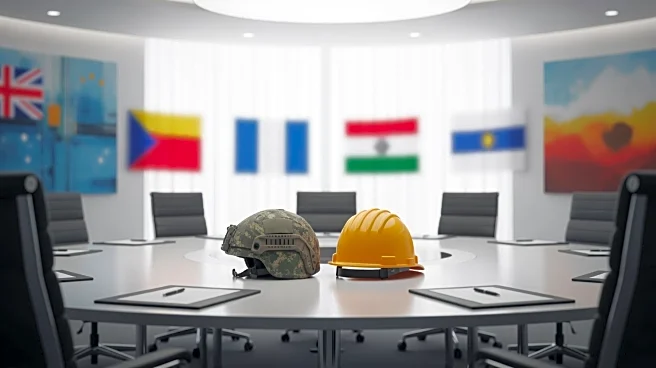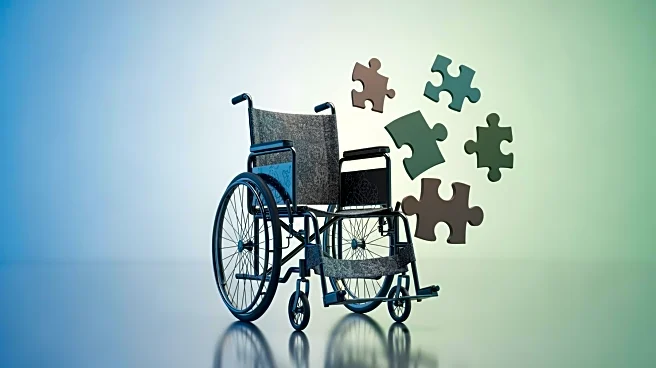What's Happening?
Sweden is hosting a NATO conference on civil defence from November 3-5, 2025, in Stockholm. The event is led by Sweden's Ministers for Defence and Civil Defence, Pål Jonson and Carl-Oskar Bohlin. The conference aims
to strengthen civil-military collaboration among NATO allies, focusing on civil preparedness, which includes continuity of government services, essential services for the population, and civil support for military operations. This initiative follows a NATO summit in June 2025, where allies agreed to increase defence spending to 5% of GDP, with up to 1.5% allocated to civil defence. Sweden, having allocated Skr37.5bn ($3.9bn) to civil defence, is considered well-positioned to share its expertise, particularly in light of the perceived Russian threat.
Why It's Important?
The conference underscores the importance of integrating civil and military efforts to enhance national security. By focusing on civil preparedness, NATO aims to ensure that member countries can maintain essential services and support military operations during crises. This is particularly crucial given the current geopolitical tensions in Europe. Sweden's approach, which includes using infrastructure to support military operations, serves as a model for other nations. The conference also highlights the need for improved cross-border military mobility within Europe, as current regulations hinder rapid deployment of military assets.
What's Next?
The outcomes of the conference are expected to influence future NATO strategies on civil defence. Member countries may adopt Sweden's practices, such as using reinforced roads for military operations, to enhance their own civil-military integration. Additionally, discussions may lead to policy changes that facilitate quicker cross-border military movements, addressing current logistical challenges. The conference could also prompt other NATO members to reassess their civil defence strategies and increase their investment in this area.
Beyond the Headlines
The conference may lead to a shift in how NATO countries perceive and implement civil defence, moving towards a more integrated approach that leverages both civilian and military resources. This could result in long-term changes in national defence policies, emphasizing the strategic value of civil infrastructure and reservists. The event also highlights the varying perceptions of civil defence across Europe, with countries like the UK potentially re-evaluating their reliance on reservists and the role of civil society in national security.








